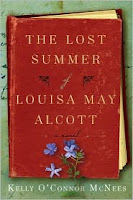 The Things They Carried by Tim O'Brien
The Things They Carried by Tim O'Brien272 pages
Published: originally 1990 by Houghton Mifflin
Source: I bought this one from Powell's Books
This one arrived at my house a couple of weeks ago and I was really excited to read it. But I knew it was going to be a couple of months before I could get to it so I loaned it to my dad who has kindly written this guest post for the book.
Synopsis from the publisher:
The Things They Carried depicts the men of Alpha Company: Jimmy Cross, Henry Dobbins, Rat Kiley, Mitchell Sanders, Norman Bowker, Kiowa, and of course, the character Tim O'Brien who has survived his tour in Vietnam to become a father and writer at the age of forty-three. They battle the enemy (or maybe more the idea of the enemy), and occasionally each other. In their relationships we see their isolation and loneliness, their rage and fear.
The review:
I was not involved in the Vietnam War, but thought I had an understanding of it from the news reports I watched almost daily, from the films I've seen, and from books and magazines. After reading THE THINGS THEY CARRIED, I'm persuaded that my grasp on it was no better than slight. I knew how we got into it, I knew about the big battles, and I knew how it ended. I did not understand at all how it was from the perspective of the guys who fought it. I think I have a handle on that now.
O'Brien, who was there, begins with an extensive summary of---as the title suggests---the material things that his comrades carried into combat. Some of it was based on necessity, including dog tags, mosquito repellent, salt tablets, rations, water, and, of course, weapons.
Some of what they carried (humped) was partly a function of rank and/or field specialty, including the first lieutenant's compass, maps, and code books; the medics morphine, plasma, and surgical tape; and the radio man's PRC-25. It varied by mission: if the job was to destroy tunnel complexes, they carried blocks of pentrite high explosives, wiring, and detonators; if it took them into an area known to be heavily mined, they took turns humping a mine detector.
Personal individuality and superstition influenced the load. Rat Kiley carried brandy and M&Ms candy; Lieutenant Jimmy Cross had in his mouth for good luck a small, smooth pebble a girl back home had sent him; Dave Jensen included "a toothbrush, dental floss, and several hotel-sized bars of soap he'd stolen on R&R in Sydney, Australia; Ted Lavender carried tranquilizers to get him through the day; Henry Dobbins wore his girlfriend's panty hose into combat "wrapped around his neck as a comforter."
O'Brien gives or estimates the weight (your flak jacket weighed 6.7 lbs, a Claymore anti-personnel mine "3.5 pounds with its firing device," your M-16 assault rifle 8.2 pounds with its full magazine) of most of the things the men humped so you can get a pretty good idea of how physically ponderous was the load they carried when they were in the field.
This is all so well and interestingly written that it escapes the feeling of mere cataloging. But I began to wonder how O'Brien could stretch it out to fill up an entire book and, if that's what he was up to, how long he could hold my attention with it.
Not to worry. He had much more important things to tell about.
How does it feel to always believe you should have been smart enough to have somehow avoided being sent to this dreadful place in which you are very apt to die? To carry inside you the terror of a night patrol, when it's so dark you can't even see your comrades and you walk in dread of getting separated in a hostile environment? To be unable to forget the mistake you made that cost a comrade his life? To come to believe your enemy has supernatural powers that can make him appear where you least expect him and make him invulnerable to your best shots? To play over and over in your mind the occasion on which you were assigned to climb a tree and throw down the various parts of a comrade who'd stepped on a land mine? To know you lacked sufficient courage to take appropriate action at some critical point? To be aware that when you did take action, it was not because of nationalism or some grand idealism but simply because you'd have been embarrassed not to. To be haunted by the image of what was left of the first man you killed? To watch, in the middle of a just-destroyed village, a teenaged girl mindlessly dancing in front of the burn-out hut in which the other members of her family lie dead?
O'Brien deals with these questions and more in a series of stories in which he and the other men of his platoon were involved. Are they true? The reader is advised at the outset that "This is a work of fiction. Except for a few details regarding the author's own life, all the incidents, names, and characters are imaginary." The author contends, however, that what you imagine is true and what you dream is true are sometimes more true than what actually happened. At any rate, he was there, and I'm willing to accept that though the exact stories he relates may be fiction, they're based on things he really saw and felt.
I personally had no experience of this---or any---war, so I'll rely on the understanding of those who have had. The review of THE THINGS THEY CARRIED in The Veteran said "Go out and get this book and read it. Read it slowly and let O'Brien's masterful storytelling and his eloquent philosophizing about the nature of war wash over you."









































